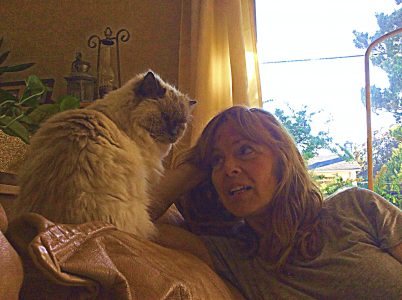By Nancy Ami
“I love deadlines. I like the whooshing sound they make as they fly by.”
– Douglas Adams

A younger me learned to love deadlines, too, but for a different reason. A deadline was the only thing, I mean the only thing, that could force me to draft a piece of writing.
As a top-notch procrastinator who submitted assignments just in time for deadlines, I wondered why I struggled so much to get my thoughts down on a page. Why was drafting so hard? The “linear” process of writing: choosing a topic, generating ideas, planning, drafting, revising and editing – seemed easy enough. What was it about the drafting – the movement of fingers across keys, translating ideas into text – that made it so painful?
Almost 25 years ago, I attended the 1993 ATESL (Alberta Teachers of English as a Second Language) Conference, eager to learn how I might teach writing better (and how I might write better myself). I attended Ernie Hall’s excellent presentation. He explained the cognitive processes writers engage in. He described the heavy demand these processes place on writers and that these contributed to writers’ frequent pausing. He outlined the following intricate purposes for which writers pause as they draft: search, plan, evaluate, describe, question, and revise.
- Search
We search for new ideas and the words to express them.
- Plan
While we plan before we write, we also plan as we write. We consider order and arrangement of ideas. We plan our next steps as we draft, for in drafting, we gain insight into order and idea development.
- Evaluate
We pause to judge as we draft. We wonder if it’s good enough. We critically analyze what is on the page before moving on. As a result of a pause to evaluate, we work back through our draft, revising and rewriting what we have already drafted.
- Question (wonder)
We pause to wonder as we draft. We ask ourselves questions as we write. “How do I know that?” or “Where did I read that?” or “What else do I know?”
- Revise
We pause to fix. We fix content, organization, word choices, sentence structure, grammar, and spelling. We revise so much that we forget to draft.
- Decide (proceed without solution)
We pause but decide to proceed, to move on, to continue drafting. We may worry that we might forget the reason we paused. We capture the essence of our struggle, perhaps via track changes: “Add a citation here” or “Find more data for this argument” or we open an additional word document to note issues we face as we draft. We keep drafting, though, trusting a solution to the problem will emerge as we go.
Writers employ strategic pauses, meaningful pauses, necessary pauses when drafting. Writers pause for a reason. I had always thought that my pauses meant there was something wrong; that I couldn’t write; that I had nothing worthy to say. Now I understand the cognitive processes drafting involves. When drafting, I pause and analyze my pause. I strategically search, plan, evaluate, question, revise, or proceed without solution. Drafting is hard work because it involves constant, relentless monitoring and management.
I still love and need deadlines to get started on my drafts. However, understanding drafting’s complexity and the intricate decision-making it involves helps me embrace the process, capturing my ideas into text just before the deadlines whoosh by.
As the Manager of the Centre for Academic Communication, Nancy loves working with her CAC team to support UVic writers, collaborating with UVic partners and faculty. As an EAL Specialist, she’s taught international students for 25 years, in both public and private institutions.